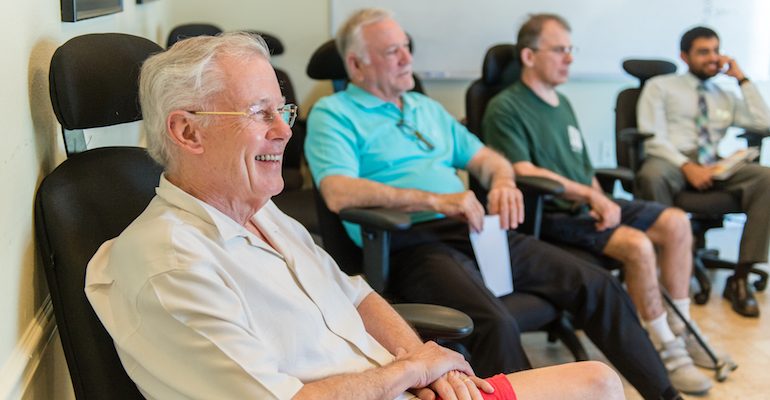Are Consumers Being Denied Mental Health Coverage?
By Consumers for Quality Care, on June 23, 2017

Photo by Heidi de Marco/KHN
The Boston Globe recently reported on a growing trend of insurance companies refusing to cover mental health programs.
Wilderness Therapy, a form of behavioral therapy, is increasingly accepted by mental health professionals to treat behavioral, substance abuse and mental health issues in teenagers. The programs use many of the same tactics as traditional in-patient programs, but places them in a radically different setting.
“Many would say you have to have a quality treatment program; whether it’s taking place in the wilderness and or in a group home doesn’t matter.’’
For many families, these programs are a list ditch effort to help teens who are defiant against or unsuccessful with other kinds of treatment.
The adolescents who turn to wilderness therapy “are on the brink,’’ said Patrick Sheehan, a Boston attorney who filed many of the lawsuits. “It is a life-or-death choice for them.’’
“We were lost,’’ said [a] mother, Erica Freilich… “It was either do this or watch your child die.’’
There are lawsuits over insurers denying this kind of treatment in at least 5 states:
Lawsuits have been filed in Florida, Kentucky, New York, and Utah, bolstered by federal rules expanding mental health care coverage, and by improvements in the wilderness therapy industry itself.
Two Massachusetts insurers are refusing to comment on why they are not covering the therapy.
Mary Covington, who is the president of a Utah company that helps fight insurance denials, argues for the coverage of wilderness therapy:
S]he is winning more of these fights, in large part due to 2013 federal rules requiring coverage of “intermediate care’’ for patients. “That opened up everything for wilderness therapy,’’ she said. If the insurer covers skilled nursing or inpatient rehabilitation on the medical side, then, she argues, they should cover intermediate treatment on the mental health side.
Kayla, Erica Freilich’s daughter, agrees.
If it hadn’t been for wilderness therapy making her more open to treatment, Kayla doesn’t think she would have agreed to residential care afterward. Kayla, now 18 and feeling better, is working as a camp counselor this summer. She will be a sophomore at Boston University in the fall.




